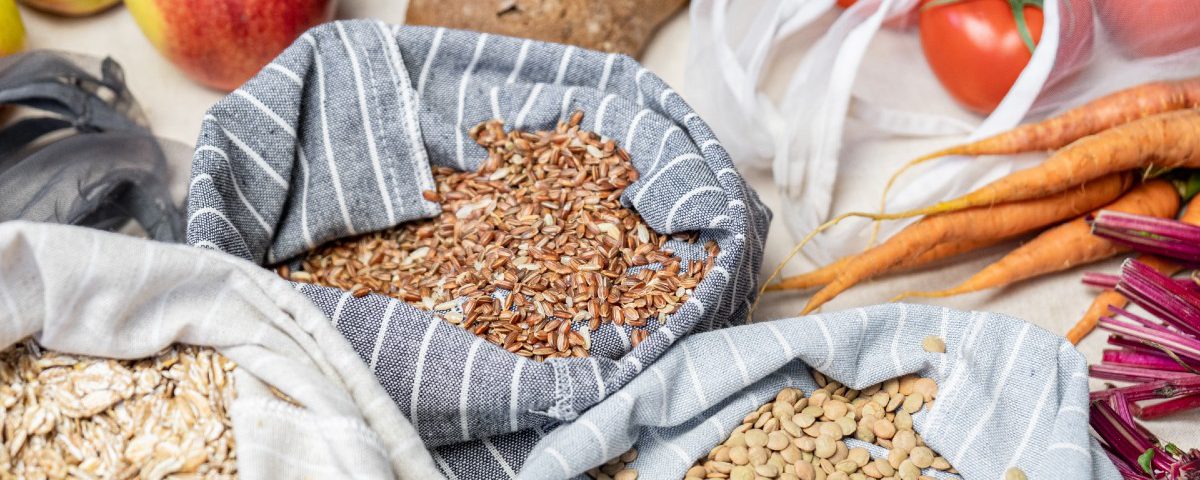According to the United Nations, around a third of all food destined for human consumption is lost or wasted, from primary food production right up to food preparation and consumption. Not only does this wasteful behaviour squander precious resources, like water, land and energy, but needlessly produces greenhouse gas emissions that contribute to climate change. It has been a wake-up call to the beauty industry to invest in and develop products created from food waste ingredients.
Food ingredients, especially superfoods, have long been used in skincare and haircare formulations, but food from waste is a much newer and more eco-friendly development. Across the industry, from smaller beauty ingredients companies to projects spun out from academia, food waste is no longer a niche idea, but represents a serious step towards a more sustainable future for beauty brands.
Joanne Bell, brand insight and content director, Free the Birds, highlights beauty ingredient companies like Biolie, Akott and Expanscience, which have been involved in food was for years. “64% of Expanscience’s active ingredients catalogue is derived from food waste,” she affirms. Meanwhile, Keracol, a spin-off from Leeds University, helped M&S develop its wine-waste Pure range and created a range of natural dyes and haircare products from blackcurrant pulp. Another, Revive Eco, is a Scottish indie working on a palm alternative extracted from used coffee grounds, and there are others. “The big guns ingredients manufacturers, like Cargill, BASF and IFF are all making significant investments in and recently launching food waste products from lemon peels, rambutans, blackcurrants and more besides,” explains Bell.
Another source of food wastage comes from the 20% or more of produce that gets thrown away because of how it looks. However, several studies confirm that foods with imperfections are packed with nutritional and skin health properties. The Body Shop is tapping into the trend by buying up wonky carrots and bananas which retailers refuse to sell for its Carrot facial skincare and Wonderfully Wonky Banana collection. Andrew McDougall, associate director, beauty and personal care, Mintel quotes from the research: “Higher levels of antioxidants (phenylpropanoids) were measured in the peel of scab apples than peels of those apples not infected with fungus Venturia inaequalis. And it’s not just the peel: infected leaves with scab showed up to a 20% increase in phenolic (antioxidant) compounds.”
Beauty launches using ingredients derived from food waste are on the increase and Mintel cites the following:
- Aquafaba (chickpea brine that is normally thrown away) shares properties with egg white and can be used an alternative in haircare products. Lush has launched vegan protein shampoos made with aquafaba, touting its protein and saponin properties to help protect and strengthen fine hair. “The ingredient can tell a similarly engaging story as rice proteins and water has done in the past, breathing new life into the category and building on trusted home remedies to connect with consumers,” says McDougall.
- British brand UpCircle Beauty has launched oils, scrubs and soap bars based on used coffee waste and chai spice granules.
- Food produce supplier, Daylesford Organic, has launched a Bitter Orange Hand Balm formulated with cold-pressed citrus aurantium from the peel of Seville oranges.
- Fruu is a range of natural lip balms, produced locally in small batches, that combines by-products of processed fruit waste, creating biodegradable and sustainable formulas, while also generating extra revenue for small fruit farmers.
New British bodycare brand Byre contains sweet whey powder, a by-product of milk and cheese production, and is usually thrown away. Available in Full Cream, Semi Skimmed and Skimmed body wash versions, Byre is committing a percentage of annual net sales to the UK’s Royal Agricultural Benevolent Institution.
Although the concept of food waste is an attractive one in beauty due to the sustainability story, the industry faces negative consumer perceptions around the idea. “Put simply, people felt they are less good than products made with ‘virgin’ materials and struggled on perceptions of quality and function,” remarks Bell, referring to US-based research by Yu and Lee about perceptions of upcycled personal care products. Bell conducted a quick survey of 24 members of the Free The Birds team and found that upcycled products rated only 6 out of 10 on the attractiveness to buy scale, with 50% of those asked citing the “ick” factor for their reticence. “Upcycling alone will not be enough to sway all but the most environmentally minded of customers,” she believes. “Brands will need to tread carefully to choose the right language to explain the quality of the ingredients they are using and to weave this through their storytelling in a way that positively explains the difference. Rethinking the terminology might also help: food by-products, co-products, derivatives, are more engaging ways to talk about the ingredients.”
Free The Birds, Mintel and BYRE will present at this year’s in-cosmetics Global Marketing Trends presentations in Barcelona, from March 31-April 2, 2020. https://www.in-cosmetics.com/global/
The Marketing Trends theatre is the most popular educational feature at the event. Priority Passes are available visitors to book and get a guaranteed seat in the sessions. To register and book a pass, visit in-cosmetics.com/register.

